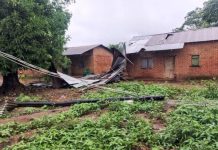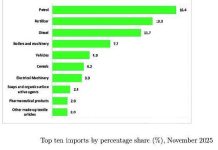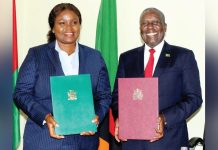Tomsangala
Africa-Press – Malawi. Mbenje Island on Lake Malawi is a beacon of effective community-driven fisheries management regime. Under the guidance of the powerful and highly respected Senior Chief Makanjira in Salima District, the system has endured for 70 years. It is built on reverence of ancestral spirits and compliance with traditionally set social values. In a recent research, scientists at the Mzuzu University and University of Strathclyde in Scotland collaborated to investigate the history of fisheries management on Lake Malawi, under the Lessons From Lake Malawi Project. The project report also highlights the effectiveness of the Mbenje regime. CHARLES MPAKA emailed questions to team leader, David Wilson, a lecturer in Maritime History at the University of Strathclyde. Excerpts:
Mbenje fishery resource management customs have endured for nearly seven decades now, surviving both colonial and post-colonial government policies. What could this be attributed to?
The management regime was first initiated by Senior Chief Makanjira in response to requests by migrant fishermen to settle at Mbenje to begin commercial fishing operations. Makanjira established regulations out of concern for fish stocks and fishers’ safety and social harmony. As a result, these rules and regulations are embedded within existing power structures and institutional relations alongside spiritual beliefs and local knowledge of breeding seasons. This provides the regime with legitimacy among fishers as it has not been imposed from outside and is not removed from local realities. The observed long-term successes at Mbenje Island have then reinforced the legitimacy and efficacy of the rules amongst participants. Consequently, villagers have developed a strong and proud attachment to the fishery. This long-term success has only been possible through strong leadership, strict and sustained enforcement, and effective communication.
The governance of the fishing grounds was originally in the hands of the communities in the beach areas and surrounding villages before the government moved in. So far, it is only at Mbenje that the original old ways of doing things remain solid. Is it possible to replicate these methods in all the other areas along the lake and other water bodies in Malawi to stem the tide of overfishing there? What would need to be done to achieve this?
One of the biggest challenges to fisheries management is the question of the legitimacy of regulations and enforcement methods. There is often a focus on technical fixes and solutions to management concerns (i.e. declining fish stocks). Such technical solutions, however, are rarely embedded in the institutional, political, spiritual, social, and economic realities of fishing communities. As such, a fundamental disconnect develops between resource users, enforcement agents, and resource governors.
The successes at Mbenje has centred on its embeddedness in local structures and realities and, especially, the leadership of Senior Chief Makanjira and the Mbenje Island Fisheries Committees. We need to be careful not to simply try to replicate the specific rules, regulations, and structures at Mbenje in other parts of the lake, as this would really be a technical fix and would ignore diverse and distinctive cultural, environmental, political, and social contexts throughout lake fishing communities. We need to move away from a focus on external blueprints and agenda setting to instead recognise that governmental and international funding would be better targeted at supporting networks for long-term engagement and knowledge sharing between fisheries leaders and participants while providing sustained backing through tangible resources (and not just legislative provisions) to enable communities to implement decisions made based on lessons learned and shared.
What can the government do to promote or strengthen Mbenje’s practices considering that they are proving to be more effective than the government’s management regimes?
This speaks to the need to engage fishing communities across the management spectrum and not just in questions of managing fish harvests themselves. By this, I mean engaging perspectives from across the fisheries value chain across decision making structures, enabling them to meaningfully engage in setting the direction for fisheries management, designing appropriate management structures, and designing future fisheries policies. At the same time, scientific data must be mobilised to support community decision making, including understanding the types of scientific data and research that they require that would support their decision making (i.e. what science would be helpful). This moves away from science as underpinning top-down governance to instead engage science as part of a spectrum of knowledge that can support (but not dictate) decisions by the lakeshore.
What does the Mbenje Island situation tell us about the place of indigenous knowledge in fishery resources management even in the face of ‘modern’ science methods?
This also relates to the question of legitimacy and also whose knowledge is used to inform decisions. We should not discard the significant insights and forewarnings that scientific analysis can offer, but this needs to be partnered with and co-exist on an equal footing with the deep place-based knowledge, practices, and observations of fishers. Any such pairing of place-based knowledge with ecosystem monitoring requires local decision-makers and participants across the fisheries value chain to be active and leading participants in the design of ecosystem monitoring processes and structures.
For More News And Analysis About Malawi Follow Africa-Press






